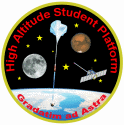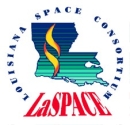



Payload 07 Information
Payload Flight Number:
Institution:
Payload Title:
Measurements of Ozone in the Troposphere and Stratosphere
Student Leader:
Faculty Advisor:
Payload class:
SMALL
Payload ID Number:
07
Mass:
Current:
Serial Downlink:
Analog Downlink:
Serial Commands:
Discrete Commands:
Payload Specification & Integration Plan
Due: 6/29/23
Delivered:
Payload Integration Certification
Scheduled: 7/29/23
Actual:
Flight Operation Plan
Due: 7/21/23
Delivered:
Final Flight / Science Report
Due: 12/08/23
Delivered:
Abstract:
Ozone in the stratosphere protects us from the Sun's harmful ultraviolet rays. However, ozone in the troposphere, closer to Earth’s surface, is a pollutant and hazardous to our health. Based on the success and experience of previous HASP flights, the UNF-UND team proposes the HASP 2023 flight for the fabrication of new improved ozone sensors and payload to measure ozone profile in the stratosphere and troposphere. Three different types of nanocrystalline and nanocomposite materials will be used in fabrication of thin film gas sensors arrays. Gas sensors will be mounted on the three sides of rectangular payload body. Each sensor box will have 8 ozone gas sensors array. Ozone gas sensors will be fabricated and calibrated by the students’ team at UNF. The UV light photodiode sensor will be mounted just below ozone gas sensors box to measure the amount of photovoltage generated by UV sun light, which will support the science concept of generation of ozone gas in the presence of UV sun light. This proposed HASP2023 flight science experiment will help us understanding good ozone in the stratosphere, bad ozone in the troposphere. The weight of payload with HASP mounting plate will be about 2.75 kg, maximum power drawn will be about 1.2 W and 238 bytes downlink bandwidth. Team consists of three returning and two new students working on the research project.
Science Report:
|